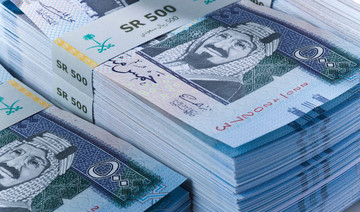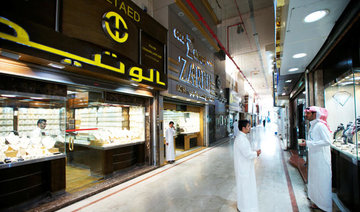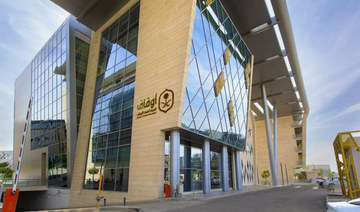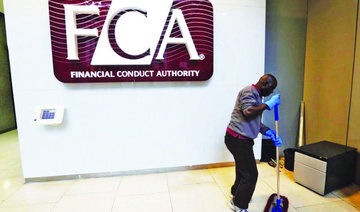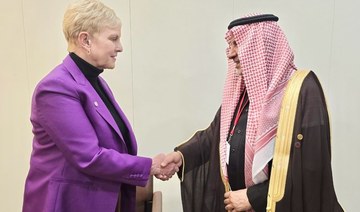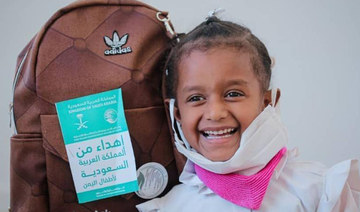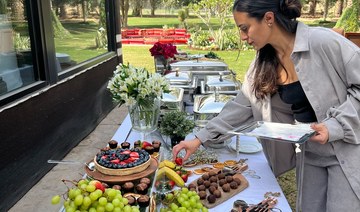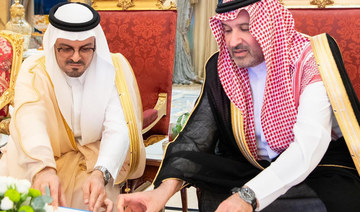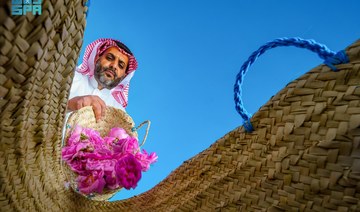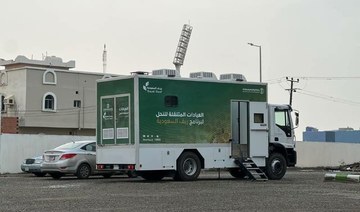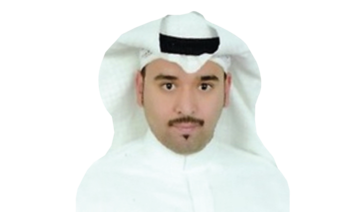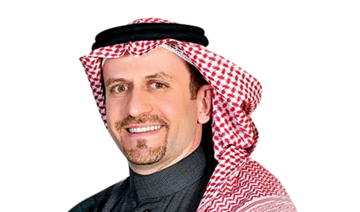JEDDAH: The Saudi government is not expected to impose fees on the remittances of foreign workers despite a related proposal submitted to the Shoura Council to discus the subject.
Dr. Mohammed Al-Abbas, an economic analyst, told Arab News that the proposal was made even before the last drops in oil prices.
“Long ago, foreign workers’ remittances went as high as nearly SR150 billion ($40 billion). Since then media has called for the imposing of fees on such remittances. At that time there was no tendency to impose dependent fees on expats,” Al-Abbas said.
He added that the only discussion circulating then was whether to impose fees on remittances or not.
Al-Abbas, who is also a member of the Shoura Council, explained that the main point behind that idea was to preserve the country’s financial reserves. “As you know, when an expat worker sends money to his country, the process should go through major currencies, especially the dollar. That means banks change riyals with dollars. That way, dollars are sent outside the Kingdom. This, of course, drains our reserves of hard currency,” he said.
For that reason, Al-Abbas continued, a proposal was made to curb such remittances for the sake of alleviating pressure on our reserves.
Asked if the move would add to the national economy, he said: “I do not want to anticipate events, but I can say, from my own point of view, and this is just my personal opinion, imposing fees on foreign workers remittances was not feasible in the past, nor will it be a major solution, as such remitting processes can be made through a variety of channels,” he said.
He further explained that when an expat pays all his taxes regularly to the government, you could not then stop him from doing any lawful action. This is one of the rights that the regulations of Kingdom have guaranteed him. He added that it is not acceptable to ask a foreign worker who is committed to paying taxes to pay for his remittances. “The Kingdom’s rules are always based on justice and fairness,” he said.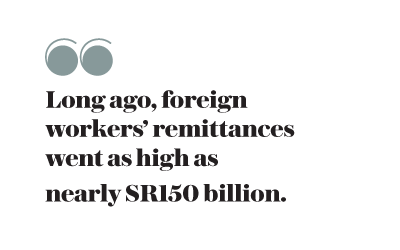
Al-Abbas believes that the move will not work as a solution to national economic issues, such as unemployment. “I do not think such a project will even have a good impact on the national economy, in that it will not contribute to reducing unemployment rates,” he said.
Al-Abbas added that the project would not help to reduce the shadow economy. The experienced analyst thinks that the move would only cause harm to foreign laborers.
He said that the project, if approved, will have negative consequences on foreign investments in Saudi Arabia. He also noted that the countries of these foreign workers would reciprocate. “They will do the same and impose fees on Saudis living or working in their countries. This normally happens in global economic policies,” he said.
He pointed out that the project is still a proposal that might be discussed at the Shoura Council, and the latter may agree on the suggestion or not. “So far nothing is official about that,”
Furthermore, Al-Abbas said that imposing such burdens would also make it hard to control capital mobility smoothly and fairly, and might be a barrier to capital movement. “The most important point here is to efficiently control our banking system if we want things to go the way we like. Here is the point we should work on. The Saudi banking system is strong enough to detect any tax evasion attempts,” he said.
He gave an example, saying if a foreign worker tries to remit big amounts of money, he will be questioned as: “Where did you get that amount from?” In case he was found not paying tax, tough legal measures will be taken against him. “These measures can be as harsh as expropriating his whole money if he fails to disclose its source,” he said.
Another important issue that Al-Abbas highlighted is to support the Ministry of Trade’s great efforts in fighting cover-up (tasatur). He said that it would be better if we focus on these two matters rather than imposing more fees on foreign workers.
Saudi Arabia’s Ministry of Finance has earlier denied reports that it was planning to impose fees on the remittances of foreign workers.
The ministry said it was committed to supporting the free movement of capital through official channels in accordance with international standards and practices. The statement was issued in response to “baseless and unfounded reports” by some media outlets.
The Kingdom is home to more than 10 million foreign workers who in 2017 sent almost $38 billion to their home countries.
The ministry said keeping the remittances free of fees “will also enhance foreign investors’ confidence in the Kingdom’s economy and financial systems.”
The ministry said it had already denied rumors of charging expats for their remittances in January 2017.
Fees on expat remittances ‘not a solution’, in KSA
Fees on expat remittances ‘not a solution’, in KSA
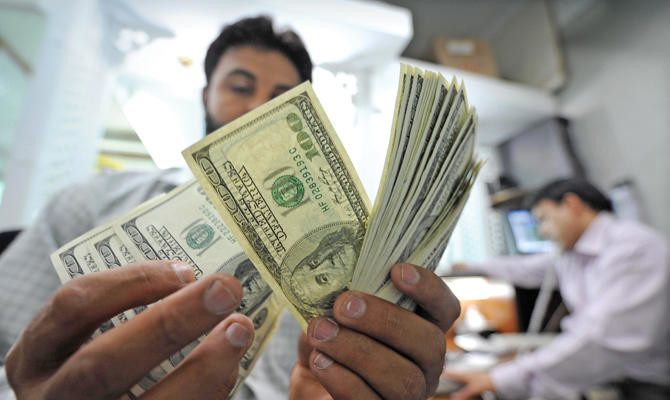
- The Kingdom is home to more than 10 million foreign workers who in 2017 sent almost $38 billion to their home countries
Saudi Arabia launches witness protection center
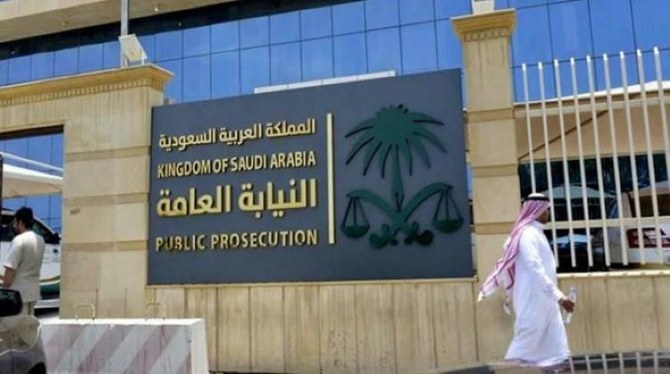
- Attorney General Sheikh Saud Al-Mojeb approved the establishment in line with Article Four of the Law for the Protection of Whistleblowers, Witnesses, Experts and Victims
- Criminal penalties for those who harm witnesses under protection include up to three years’ imprisonment and fines of up to SR5 million
RIYADH: Saudi Arabia has launched a new center to protect whistleblowers and witnesses to crimes that will begin operations in July.
Attorney General Sheikh Saud Al-Mojeb approved the establishment in line with Article Four of the Law for the Protection of Whistleblowers, Witnesses, Experts and Victims.
The center will provide legal protection from threats, danger, or harm through methods stipulated in Article Fourteen of the Law, including security, as well as identity and data anonymization.
Victims can be transferred from their place of work, temporarily or permanently, and provided with alternative employment, as well as legal, psychological and social guidance.
The protection also includes provisions for security escorts and financial assistance.
Witnesses and whistleblowers can submit protection requests according to specific conditions, and can be assisted by the center without requesting help if in imminent danger.
Criminal penalties for those who harm witnesses under protection include up to three years’ imprisonment and fines of up to SR5 million ($1.3 million).
Tariq Al-Suqair, an accredited lawyer, told Arab News: “Each state has a duty to establish procedures that provide measures for the protection of people whose cooperation with the justice system in an investigation may put them at risk of physical harm.”
Saudi Arabia, which ratified the UN organized crime convention in 2005, has domestic laws that mandate protective measures for victims and witnesses of crime, he added.
Al-Suqair said that the Kingdom’s latest measures operate in accordance with Article 24 of the convention, which calls for effective protection for witnesses from retaliation or intimidation.
Saudi Arabia’s Public Prosecution has proposed an executive body to run the center and its witness protection program.
“It is expected that once the program starts, we will witness more effective control to combat sophisticated organized crimes,” Al-Suqair said.
KSrelief signs agreement with Majmaah University
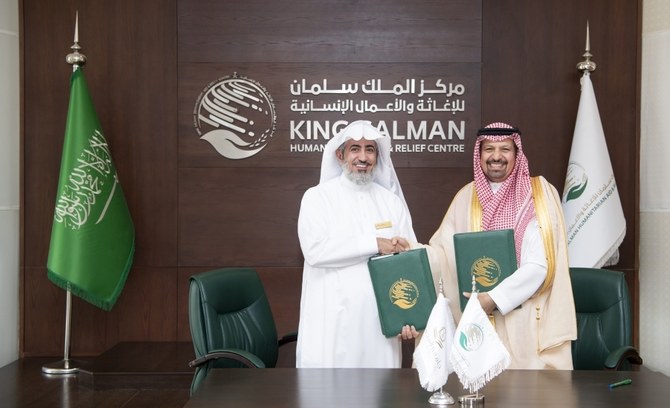
- Deal aims to foster cooperation in humanitarian research and boost participation from both sides in conferences, workshops, meetings, and exhibitions
RIYADH: Saudi humanitarian aid agency KSrelief signed on Thursday a deal with Majmaah University to cooperate in several areas.
The agreement was signed at the center’s headquarters in Riyadh by Dr. Aqeel Al-Ghamdi, assistant supervisor general director for planning and development at KSrelief, and Dr. Mosallam Al-Dosari, vice-rector for development and investment.
The deal aims to foster cooperation in humanitarian research and boost participation from both sides in conferences, workshops, meetings, exhibitions, and other events related to the field. The two parties are also exploring the possibility of holding a workshop on humanitarian research and studies on the sidelines of the Riyadh International Humanitarian Forum, organized by KSrelief every two years.
Moreover, the memorandum aims to promote cooperation in volunteering by leveraging the university’s cadres, competencies, and CIFAL center, a UN-affiliated training hub that educates government authorities and civil society leaders on sustainable development and other UN goals.
The memorandum will also allow for the two entities to share consultancy services on relief and humanitarian work, draw on each other’s experiences, and benefit from capacity-building programs provided by the university’s CIFAL center.
The agreement comes in line with the Saudi Vision 2030 objectives, which encourage cooperation between various national actors and the promotion of humanitarian action in the Kingdom.
Date confirmed for Health Tourism Future Forum in Riyadh
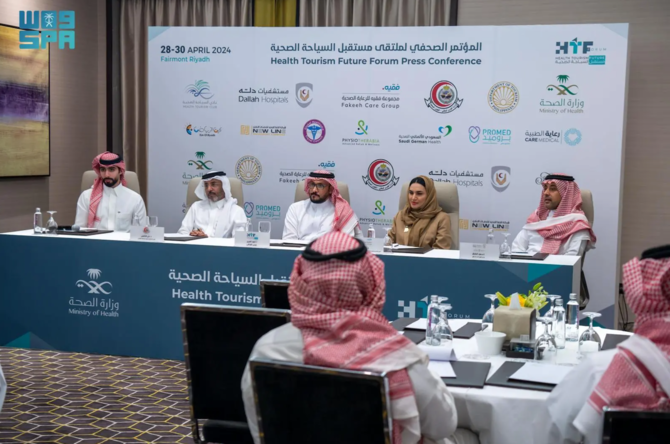
- Event will showcase the Kingdom’s importance as a promising global market for health
- Aim is to attract visitors, interested parties, and investors from all over the world, as well as promote major projects, such as Amaala
RIYADH: The Health Tourism Association has revealed what is in store at its future forum, which will be held in Riyadh from April 28-30.
The event, which is being organized by the Health Tourism Club and the Health Tourism Association in partnership with the Global Healthcare Travel Council, will showcase the Kingdom’s importance as a promising global market for health tourism, presenting investment opportunities in the tourism and healthcare sectors, along with new destinations, while hoping to establish a new annual global platform for the industry in Riyadh.
The aim is to attract visitors, interested parties, and investors from all over the world, as well as promote major projects, such as Amaala, in an effort to make the Kingdom an attractive destination for safe, high-quality healthcare with international accreditation.
The press conference preceding the event spoke of patients seeking healthcare benefiting from the advanced system in the country and the extensive network of distinguished, high-quality hospitals and medical centers throughout the Kingdom.
Scent of success as Saudi Arabia aims for 2bn roses
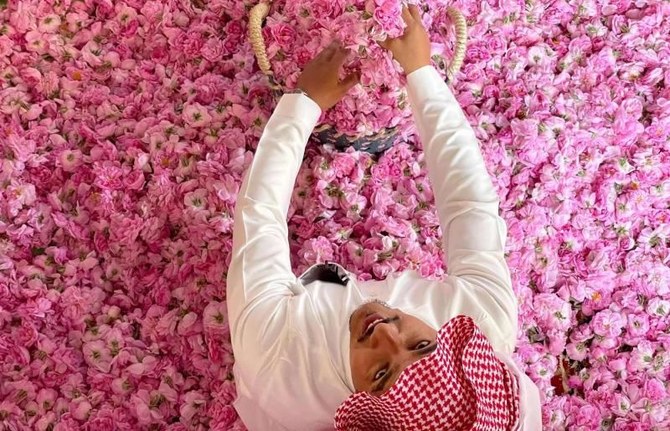
- Reef Saudi, which focuses on enhancing productivity of vital agricultural crops, announced a 34 percent increase in rose production last year
- Reef also seeks to diversify agricultural production across rural areas, while ensuring optimal and sustainable use of natural agricultural and water resources
RIYADH: Reef Saudi, a sustainable agricultural rural development program, has almost doubled rose production in the past four years, increasing from 500 million roses in 2020 to 960 million roses, the Saudi Press Agency reported.
The program, which focuses on enhancing productivity of vital agricultural crops, announced a 34 percent increase in rose production last year, and said it aims to reach a figure of 2 billion roses by 2026.
Reef also seeks to diversify agricultural production across rural areas, while ensuring optimal and sustainable use of natural agricultural and water resources.
As part of the program, plant nurseries have been established around the Kingdom, with mobile clinics to diagnose plant diseases.
The Reef program aims to raise the living standard of farmers and rural families, increase efficiency and productivity, and improve food security.
It has developed six sectors: fruit, coffee, honey, rose, rainfed agriculture, and a support program for rural families in agriculture.
Sports medicine professionals gather at global event in Riyadh
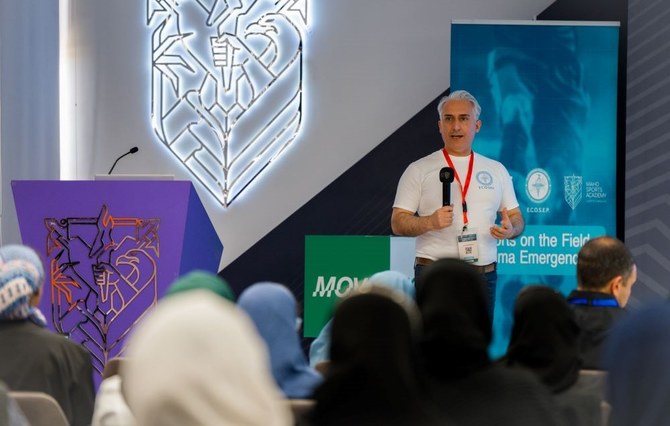
- ECOSEP conference will run until April 27 at the Crowne Plaza Riyadh RDC under the supervision of the MOVE Center for Comprehensive Sports Medicine
- MOVE Center is a specialized integrated sports medicine facility, that places a focus on diagnosing, treating, rehabilitating, educating and protecting athletes from sports injuries
RIYADH: A major global sports medicine conference began in Riyadh on Thursday, with more than 60 speakers arriving in the Saudi capital from 15 countries around the world.
The European College of Sports and Exercise Physicians (ECOSEP) conference, one of the largest events in the industry worldwide, will run until April 27 at the Crowne Plaza Riyadh RDC under the supervision of the MOVE Center for Comprehensive Sports Medicine.
The MOVE Center is the first facility specialized in integrated sports medicine in the Kingdom, focusing on diagnosing, treating, rehabilitating, educating and protecting athletes from sports injuries.
Dr. Mubarak Al-Mutawa, the center’s CEO, said: “One of our main goals at MOVE is medical prevention. When I take one’s measurements and weight, and evaluate their condition, I always solve them with preventative solutions.
“The world is taking the lead toward the importance of being cautious and aware. A quality life consists of good nutrition and staying active because those factors prevent chronic conditions, such as diabetes and high blood pressure.”
Nikos Malliaropoulos, ECOSEP secretary general and a sports consultant, told Arab News that constant learning is the most important part of working in sports medicine.
“It (sports medicine) is starting to expand all over the world and I am really happy that we are here today in Saudi Arabia, opening the doors to sports exercise medicine.
“I think it is important as Saudi Arabia will host the World Cup in 10 years. So, over the next 10 years, this knowledge needs to be expanded to all healthcare professionals. This course changed my life and my practice 20 years ago. It was the motivation and the drive to develop that.”
Dr. Amir Pakravan, a consultant in sport and musculoskeletal medicine, as well as an ECOSEP board member, told Arab News that he previously had experience working in fast-paced medical environments, which prepared him for his job as a sports consultant.
When he is on the field, Pakravan ensures that he has a checklist of procedures memorized at all times, to ensure a quick response if an athlete is injured.
“What I would say to myself is to stick to the one, two, three and four of your list and check that you have done all of them. That focus on procedure is important.”
The three-day conference will host a series of workshops as well as sessions with industry leaders and officials.
It comes as an extension of efforts in the Saudi sports sector under the Kingdom’s Vision 2030.


